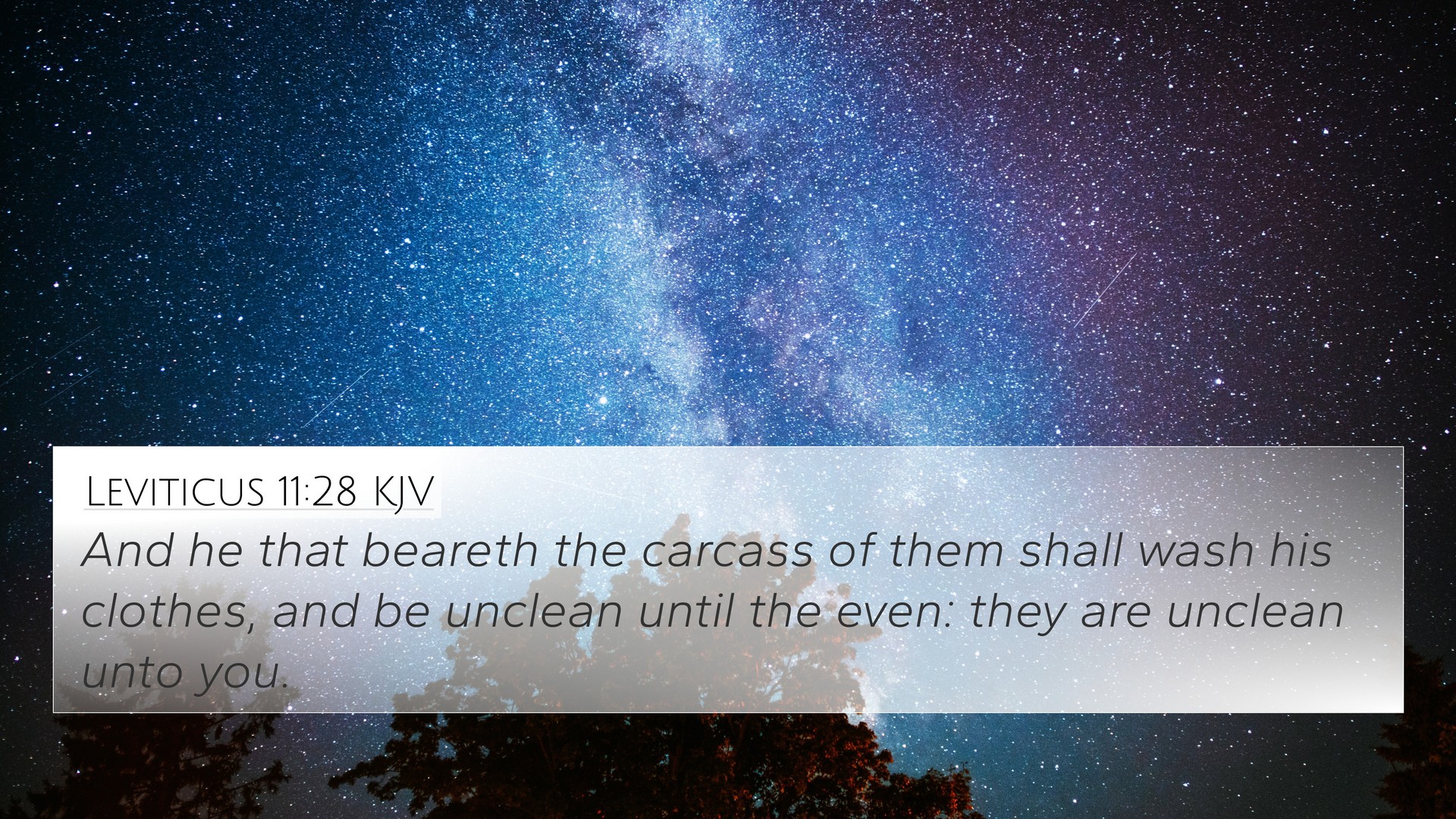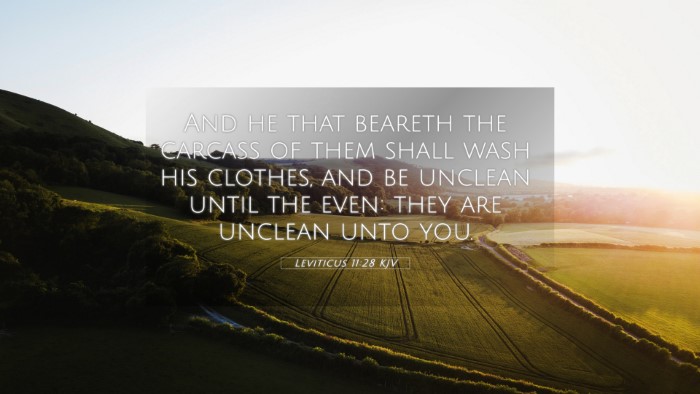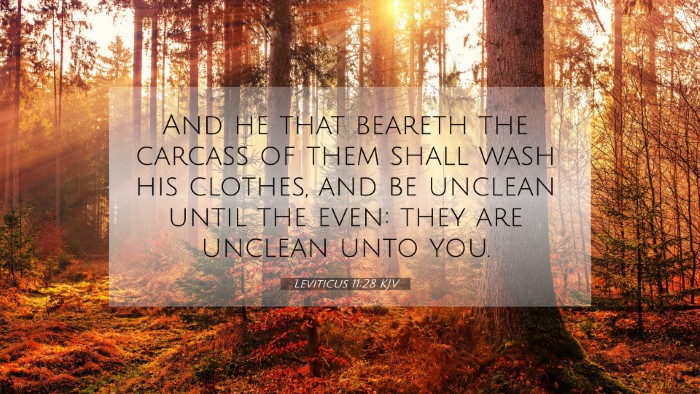Understanding Leviticus 11:28
Leviticus 11:28 states: "And he that beareth the carcass of them shall wash his clothes, and be unclean until the even: they are unclean unto you." This verse is part of a broader system of dietary laws that God provided to the Israelites, emphasizing holiness and distinction from other nations.
Meaning and Context
This verse underscores the importance of cleanliness and the symbolic significance of what is considered unclean. The commands in Leviticus were intended to set the Israelites apart as a holy people.
- Symbolic Cleanliness: The washing of clothes signifies the need to purify oneself from defilement.
- Temporal Uncleanliness: The concept of being unclean until evening indicates a period of separation that reflects the holiness of God's laws.
- God’s Design for Holiness: The laws serve as a template for understanding God’s desire for His people to remain separate from sin and to adhere to His standards for living.
Insights from Commentaries
Matthew Henry's Commentary
Matthew Henry emphasizes that these dietary laws were not merely practical but served as a form of spiritual discipline, intending to lead the Israelites towards a greater understanding of holiness and obedience to God.
Albert Barnes' Notes on the Bible
Albert Barnes points out that the carcass mentioned may refer specifically to unclean animals, and that the act of handling such carcasses brings about a ceremonial uncleanness, thereby reinforcing the need for purity in the community of Israel.
Adam Clarke’s Commentary
Adam Clarke discusses the ritual significance of cleanliness laws, suggesting they were a foretaste of the spiritual cleanliness that would be introduced through Christ in the New Testament. He notes the importance of understanding these laws not just as restrictions, but as divine protection for God’s chosen people.
Bible Cross-References
Leviticus 11:28 has several related verses that help to deepen understanding.
- Leviticus 11:3-7: These verses outline the clean and unclean animals, establishing foundational dietary laws.
- Numbers 19:11-22: Discusses laws concerning contamination and purification, reinforcing the concept of cleanliness.
- Deuteronomy 14:8: Restates dietary laws, emphasizing the difference between clean and unclean animals.
- Psalm 24:3-4: Explores the idea of who is worthy to stand in God’s holy place, linking to spiritual cleanliness.
- Isaiah 52:11: Calls God’s people to depart from impurity, resonating with the themes in Leviticus.
- 2 Corinthians 6:17: Paul reflects the call to be separate from unclean things in the context of New Testament holiness.
- Hebrews 10:22: Encourages approaching God with a true heart in full assurance of faith, highlighting inward purity.
Connections and Comparative Analysis
By comparing these verses, one can observe the continuity of God's messages surrounding holiness throughout both Old and New Testaments. The dietary restrictions in Leviticus serve as a foreshadowing of the spiritual truths that would be fulfilled in Christ, establishing a thematic Bible verse connection that points to the importance of spiritual cleanliness as expressed in the New Covenant.
Thematic Connections
The themes of holiness, separation, and cleanliness are prevalent in Scripture. By employing tools for Bible cross-referencing, such as a Bible concordance or guide, students of Scripture can uncover deeper relationships between various passages.
How to Use Cross-References
Understanding how to find cross-references can enhance one's study of the Bible. Tools such as thematic Bible verse connections can lead to a more enriched interpretation of the Scriptures.
Conclusion
Leviticus 11:28 serves as a reminder of God's holiness and the call for His people to live according to divine standards. The detailed cross-references help us appreciate the inter-Biblical dialogue that connects the Old Testament laws to New Testament teachings, enriching our understanding of God’s overall narrative of redemption.
Further Study Suggestions
- Investigate the relationship between dietary laws and spiritual principles.
- Explore Paul's teachings on purity in the church in light of Old Testament practices.
- Conduct a comparative study of how different authors in Scripture address the theme of holiness.



